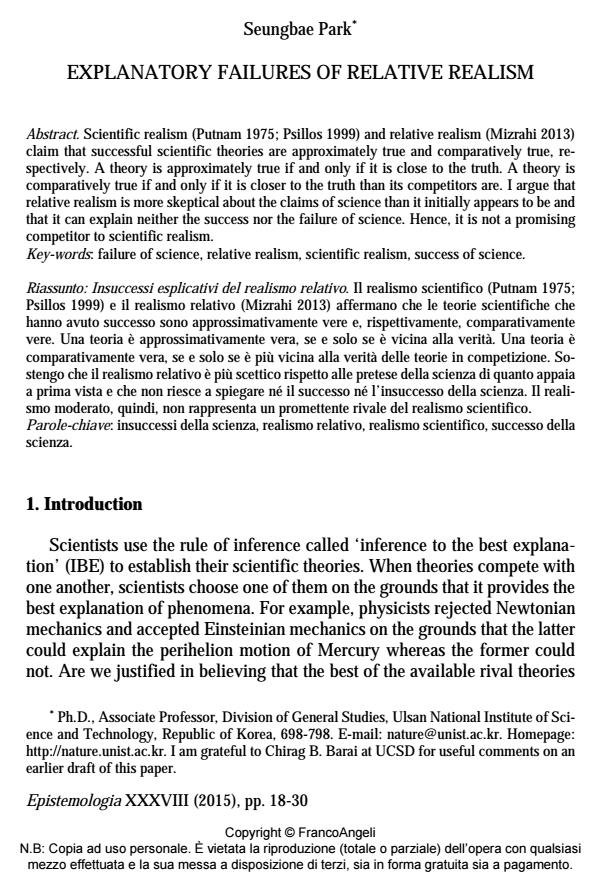Explanatory failures of relative realism
Titolo Rivista EPISTEMOLOGIA
Autori/Curatori Seungbae Park
Anno di pubblicazione 2015 Fascicolo 2015/1
Lingua Italiano Numero pagine 13 P. 18-30 Dimensione file 61 KB
DOI 10.3280/EPIS2015-001002
Il DOI è il codice a barre della proprietà intellettuale: per saperne di più
clicca qui
Qui sotto puoi vedere in anteprima la prima pagina di questo articolo.
Se questo articolo ti interessa, lo puoi acquistare (e scaricare in formato pdf) seguendo le facili indicazioni per acquistare il download credit. Acquista Download Credits per scaricare questo Articolo in formato PDF

FrancoAngeli è membro della Publishers International Linking Association, Inc (PILA), associazione indipendente e non profit per facilitare (attraverso i servizi tecnologici implementati da CrossRef.org) l’accesso degli studiosi ai contenuti digitali nelle pubblicazioni professionali e scientifiche.
Scientific realism (Putnam 1975; Psillos 1999) and relative realism (Mizrahi 2013) claim that successful scientific theories are approximately true and comparatively true, respectively. A theory is approximately true if and only if it is close to the truth. A theory is comparatively true if and only if it is closer to the truth than its competitors are. I argue that relative realism is more skeptical about the claims of science than it initially appears to be and that it can explain neither the success nor the failure of science. Hence, it is not a promising competitor to scientific realism.
Parole chiave:Insuccessi della scienza, realismo relativo, realismo scientifico, successo della scienza
- The Unificatory Power of Scientific Realism Seungbae Park, in Disputatio /2017 pp.59
DOI: 10.2478/disp-2017-0027
Seungbae Park, Explanatory failures of relative realism in "EPISTEMOLOGIA" 1/2015, pp 18-30, DOI: 10.3280/EPIS2015-001002